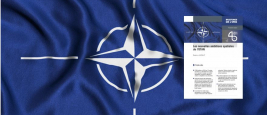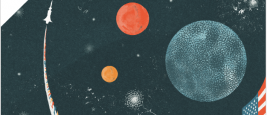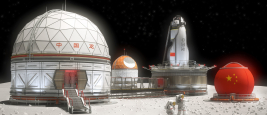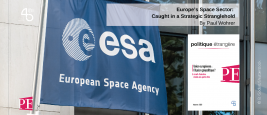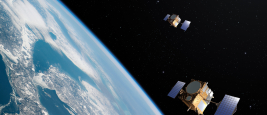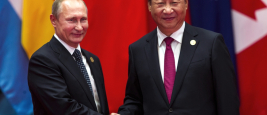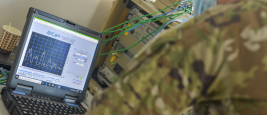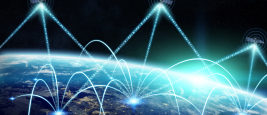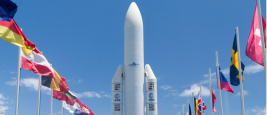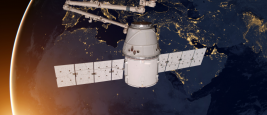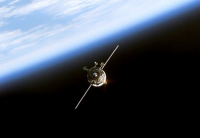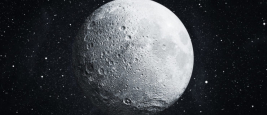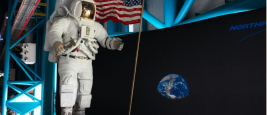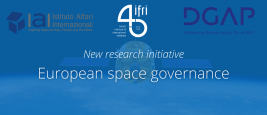The Artemis Accords provide a framework for international cooperation in space exploration as part of the U.S. lunar program. They are part of a coherent strategy.

Space
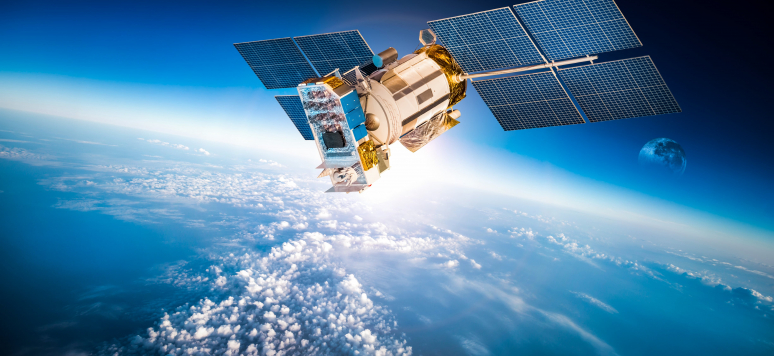
At a time when the global scene is dominated by the confrontation between China and the United States, space has become a major arena for international relations. Space is at the heart of numerous political, economic, technological and environmental issues. The emergence of new players presents opportunities for cooperation, but the growth of economic and military competition is also driving the need for autonomy in certain essential functions, such as space launches and satellite navigation.
New space agencies, Newspace companies, increasing number of satellites and collision risks, role of satellites in contemporary conflicts... In 2023, to shed light on these issues, Ifri set up a research program dedicated to space. This program is linked to the Geopolitics of Technology Center, in order to study the ever-closer interactions between the space and digital domains.
Since 2001, Ifri included space in its research, notably by ensuring that the political dimension of scientific and human exploration programs is emphasized, and by supporting reflections on the Code of Conduct for Outter Space Activities. From 2020 to 2023, Ifri coordinated a tripartite European Space Governance Initiative, together with the Deutsche Gesellschaft für Auswärtige Politik (DGAP) in Germany and the Istituto Affari Internazionali (IAI) in Italy.
Today, as part of its research agenda, Ifri mobilizes several of its centers and programs to transversally tackle the theme of space, through four main inputs:
- the competition of powers, driven by the Sino-American rivalry;
- critical points related to mastery of space, such as the issue of autonomous access to space or the mega-constellations necessary for the digital revolution;
- the new space economy driven by the emergence of new actors
- the challenges for Europe and its status as a space power.
Research Fellow, Space
...Special Advisor to the President for European Affairs
...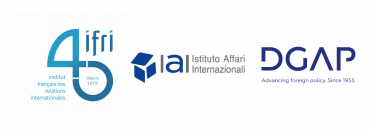
Ahead of Russia's invasion of Ukraine, a devastating cyber attack targets Ukrainian army communications, exposing Western dependence and vulnerability to space technologies, and calling NATO's defensive posture into question.
In only three decades, China has become one of the world’s top space powers. At the turn of the 2020s, almost suddenly, China became the main challenger to the US, although with a significant remaining gap to bridge.
A new Cold War-style race to the moon seems to be in the making. The People’s Republic of China and the United States are both investing in moon exploration with manned lunar scientific stations as the ultimate goal.
International agreements constitute an integral part of the normative framework crafted to ensure the effective governance of space-based operations. These agreements serve as foundational elements of "hard law," constituting binding legal norms that govern space activities. In conjunction...
Europe's space sector is currently faced with great difficulties, marked by the temporary loss of autonomous access to space, strong competition from the USA, and the transformation of the satellite market.
In April 2021, the Chinese government officially, but rather quietly, established a new state-owned enterprise (SOE) named China SatNet. Its mission: build out China’s “mega-constellation” program for low Earth orbiting internet satellites, known as Guowang (“national network”).
China-Russia cooperation in space has been increasing for the past two decades. This cooperation accelerated after the Crimea crisis in 2014 and culminated with the announcement in 2021 of the joint construction of the International Lunar Research Station (ILRS).<...>
As the commercial anchor of the space sector, the downstream sector plays an essential role in Europe where industry focuses mainly on application markets and where socio-economic considerations have become the main driver of space policy.
The number of small satellites in orbit has increased rapidly over the last decade, and the growth of this sector is expected to accelerate even more in coming years.
Space and Quantum Technologies: What Strategies and Industrial Models for Europe? Hybrid conference
Following the German September elections and on the eve of the French Presidency of the European Union, Ifri organized a day of debates on the future of technological sectors of strategic importance in Europe.
The European space sector in a context of international competition Webinar
The access to space sector is no longer limited to the historic pioneers of the space adventure nor to the sole states. Exploration projects stimulate imagination and national narratives and trigger important investments in ambitious innovative projects.
Space Security in the 2020’s: Transatlantic Perspectives Ifri Conference - With the sponsorship of the Secure World Foundation
Ifri and the Secure World Foundation (SWF) joined forces to organize a one-day conference in Brussels, addressing Transatlantic perspectives on Space security in the 2020s.
The Militarization of Space and Norway's Satellite Stations: Bases for Debate in the Next Military Space Era
A Seminar with Bård Wormdal, author of the "Satellite War" and Journalist at NRK - Norway's largest media house.
...
Orbital Slots and Spectrum Use: a Governance Outlook
This closed seminar is a collaboration endeavor. A general introduction and two short presentations on legal and political points of view will set the stage for what we hope will be an engaging discussion, under the guidance of an experienced moderator. Each participant will be asked to ...
European On-orbit Satellite Servicing and Active Debris Removal
On-orbit satellite servicing (OOS) and Active debris removal (ADR) are part of an emerging category of future on-orbit activities that are critical for taking the next leap into our use of Earth orbit. The ability to repair or refuel satellites, construct new satellites in orbit, and even...
International Relations and Space: The European Approach
The annual space conference organized by Ifri and the Secure World Foundation will be held in Brussels on September 13th, 2012.
...
European Space Governance: the Outlook
The conference will provide a snapshot of the current governance of space programs in Europe. The first panel will explore structural issues: the implications of the Lisbon Treaty in terms of policy, the legal context for space activities in Europe and the burning topics of sustainable funding...
The Continuing Story of Europe and Space Security
As European institutions continue to consider the use of space for security as well as the need for security in space, the United States has known a series of space reviews this past year. To explore these issues and foster an original debate, the Secure World Foundation, newly established in...
UNIDIR Space Security Conference 2010: From Foundations to Negotiation
Conference organized in Geneva by the United Nations Institute for Disarmament Research (UNIDIR), in collaboration with the Secure World Foundation and The Simons Foundation, with support from the Governments of the People's Republic of China and the Russian Federation.
Europe restored sovereign access to space with the first launch of the Ariane 6 heavy-lift rocket on Tuesday, after years of delays and retirement of the previous launcher had left the continent without guaranteed access to orbit, and kept a French spy satellite grounded.
China continues to add new members to its International Lunar Research Station initiative, but many of these are subnational, suggesting issues attracting partners.
Since 1969, the return of a human mission to the Moon has never seemed so close. Although scientific interest continued to flourish, space programmes had for many decades abandoned it in favour of the International Space Station and missions to explore the solar system.
China's far-reaching ambition for a permanent presence in outer space began in earnest on Thursday with the launch of its first crew bound for a new space station.
The series For All Mankind (2019) is a fictional alternate history that imagines a world where the Soviet Union was the first power to send an astronaut to the moon. From that starting point, the two rival superpowers compete to establish their own lunar station.
Eric André Martin, coordinator of the research initiative on European space governance associating Ifri, Deutsche Gesellschaft für Auswärtige Politik (DGAP) and Istituto Affari Internazionali (IAI...






